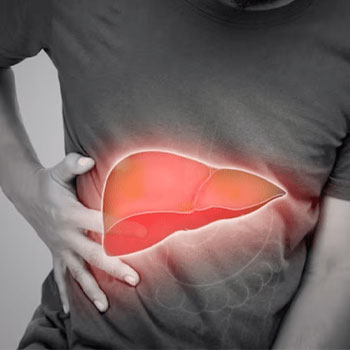liver diseases
Living with diabetes comes with its own set of challenges, and understanding potential complications is crucial for effective management of the condition. One such complication that diabetic patients need to be aware of is liver disease. This article aims to provide a comprehensive overview of liver diseases, their connection to diabetes, and tips for maintaining liver health.
What is Liver Disease?
Liver disease refers to any disorder that affects the liver's functionality. The liver is a vital organ responsible for various critical processes, including detoxification, protein synthesis, and the production of biochemicals necessary for digestion. When the liver is damaged or its function is impaired, it can lead to serious health problems.

There are several types of liver diseases, including
Fatty Liver Disease (Hepatic Steatosis)
Non-Alcoholic Fatty Liver Disease (NAFLD): This condition occurs when fat builds up in the liver without alcohol being a contributing factor. It is commonly associated with obesity, insulin resistance, and type 2 diabetes.
Alcoholic Fatty Liver Disease: This type is caused by excessive alcohol consumption, leading to fat accumulation in the liver.
Hepatitis
Hepatitis A, B, and C are viral infections that cause inflammation of the liver. Chronic hepatitis can lead to liver damage over time.
Cirrhosis
This is the result of long-term, continuous damage to the liver and may be caused by chronic alcohol abuse, viral hepatitis, or other liver diseases. It is characterized by the replacement of healthy liver tissue with scar tissue, which impairs liver function.
Liver Cancer
Primary liver cancer originates in the liver, while secondary liver cancer spreads to the liver from other parts of the body. Liver cancer is more common in individuals with chronic liver disease.
Genetic Liver Diseases
Conditions such as hemochromatosis and Wilson’s disease are inherited disorders that affect the liver.
The Connection Between Diabetes and Liver Disease
Diabetes, particularly type 2 diabetes, significantly increases the risk of developing liver diseases, especially NAFLD. Here’s how
- Insulin Resistance: Diabetes often involves insulin resistance, which can lead to increased fat accumulation in the liver.
- Metabolic Syndrome: Many diabetic patients also have metabolic syndrome, a cluster of conditions including high blood pressure, high cholesterol, and obesity, which are risk factors for liver disease.
- Inflammation: Chronic inflammation associated with diabetes can contribute to liver damage over time.
Symptoms of Liver Disease
Liver disease symptoms can be subtle in the early stages but may include
- Fatigue
- Abdominal pain or discomfort
- Jaundice (yellowing of the skin and eyes)
- Dark urine
- Pale stools
- Unexplained weight loss
Managing Liver Health for Diabetic Patients
Regular Monitoring
Regular liver function tests are crucial for diabetic patients to monitor liver health and detect any abnormalities early.
Healthy Diet
A balanced diet low in sugar, refined carbs, and unhealthy fats can help manage both blood glucose levels and liver health. Incorporate plenty of vegetables, lean proteins, and whole grains.
Weight Management
Maintaining a healthy weight through diet and exercise reduces the risk of NAFLD.
Limit Alcohol
Alcohol can exacerbate liver damage, so it’s important to consume it in moderation or avoid it altogether.
Medications
Some medications used to manage diabetes and other conditions can affect the liver. Always consult with your healthcare provider about the potential impacts on your liver.
Liver disease is a serious concern for diabetic patients, but with proper management and lifestyle adjustments, its impact can be minimized. Regular check-ups, a healthy diet, weight management, and avoiding excessive alcohol consumption are key strategies to protect your liver. Stay informed and proactive about your health to manage both diabetes and liver disease effectively.
For more information on managing diabetes and preventing complications, consult with your healthcare provider and explore reputable health resources. By understanding the connection between diabetes and liver disease, you can take the necessary steps to ensure better health outcomes.
